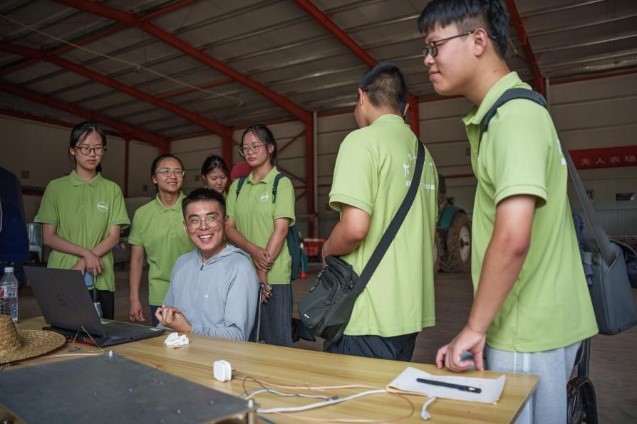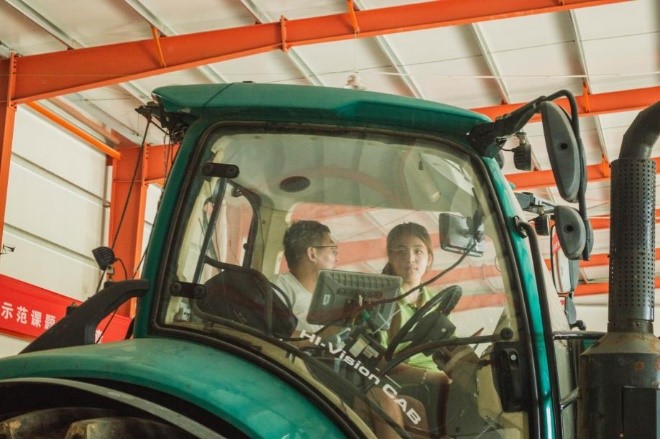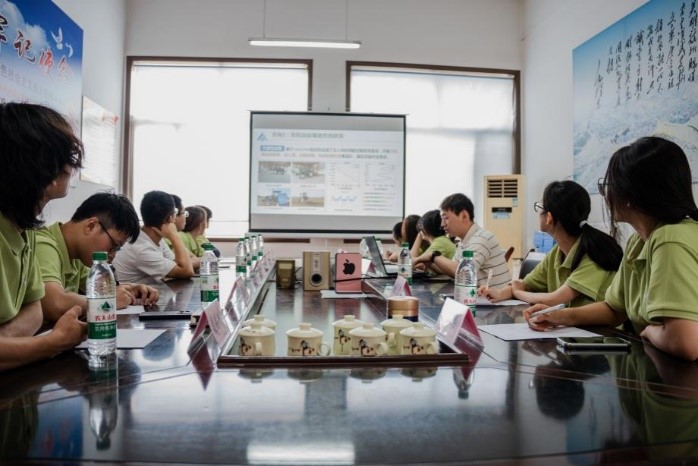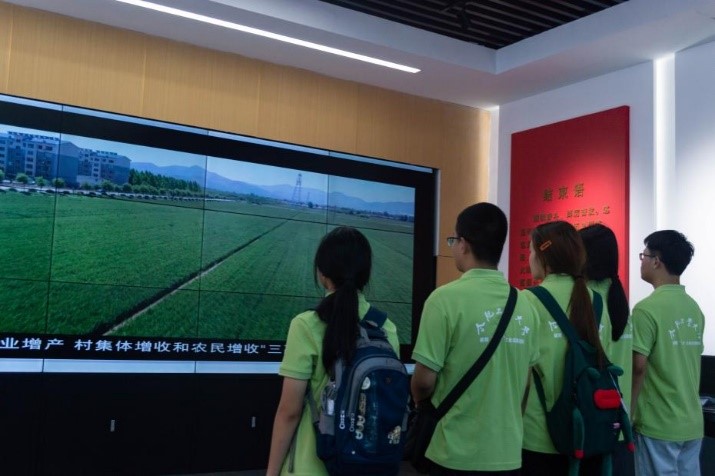To explore the significance of strengthening technological innovation in promoting rural revitalization, the practice team visited the unmanned farm demonstration base in Zouping County, Shandong Province, from July 8th to July 9th for field research.
Under the guidance of agricultural machinery developers, the team learned about the configuration and basic principles of unmanned farming equipment at the unmanned farm. The farm currently has three types of unmanned agricultural machinery: line-seeking unmanned machinery, visual target positioning unmanned machinery, and LiDAR unmanned machinery. Additionally, the farm has large drones for post-planting irrigation work in rice fields. wo staff members are responsible for the maintenance of agricultural machinery and the replacement of farming tools. Through the enthusiastic explanations of the developers, the team understood the practical effects of new agricultural science and technology on effectively increasing agricultural income and promoting rural revitalization.

They are exploring the Operational Model of Unmanned Farms. Team members took a ride in unmanned agricultural machinery. They watched developers debugging code, experiencing firsthand the entire process of unmanned machinery from leaving the garage, working in the fields, and then returning to the garage. The team learned that the characteristic of this unmanned farm is an "all-weather, all-process, all-space" unmanned production model. This mode reduces labor costs and enhances the precision of crop cultivation, ultimately achieving cost reduction and efficiency increase. It addresses issues such as rural population aging and labor shortages, laying the foundation for future fully intelligent farms.

Learning About the Deep Technology of Unmanned Farms. The team had an in-depth discussion on unmanned farm technology with Liu Zhenyao and Li Ruchuan, senior engineers from the Aerospace Information Research Institute, Chinese Academy of Sciences, in the party conference room of Zouping Primary School. They learned that the development of unmanned farms was driven by labor shortages in rural areas and extensive farming practices. In this context, the Chinese Academy of Agricultural Sciences collaborated with the Shandong Academy of Agricultural Sciences and major universities in Shandong to jointly develop unmanned farm equipment. Utilizing the "Beidou" satellite navigation system and remote sensing technology developed by the Aerospace Institute, they created an integrated system called "Satellite-based PPT-RTK." This system monitors the operation of agricultural machinery in real time and provides timely feedback. By using remote sensing technology and field sensors, it conducts real-time monitoring of soil conditions and crop growth, achieving intelligent mechanization and precise prescription of farming operations. Applying these technologies not only significantly improves agricultural production efficiency and reduces labor costs but also promotes the optimal allocation of agricultural resources and the protection of the ecological environment, providing strong support for the sustainable development of modern agriculture.

They are observing the Final Outcomes of Unmanned Farms. In the afternoon, the team visited the Digital Agriculture Platform at Mingji Town Party and Mass Service Center, which was enabled by unmanned farm equipment. Here, the team saw the digital twin system "Smart Farming" derived from unmanned farm technology. This platform includes soil conditions, accumulated temperature and rainfall data, pest and weed infestations, and fertilization plans. Farmers can observe the growth of crops in their fields through a mobile app. The system generates irrigation and fertilization plans for the fields based on the data collected. Farmers only need to decide whether to modify and confirm the plan. The unmanned machinery will then carry out the operations automatically. This not only frees up farmers' hands but also increases their income. The government can use this platform to quickly and accurately understand the actual situation of agricultural production in various places, providing data support for formulating more scientific and reasonable strategies for rural revitalization.

Through an in-depth exploration of unmanned farms, the team understood the reasons behind their development and related technologies. They witnessed the rapid progress of unmanned farming and recognized the inseparable relationship between rural revitalization and technological innovation more profoundly. The team members should deepen their professional knowledge, continuously improve their research capabilities and innovation skills, and delve into policies and measures related to the transformation and development of the agricultural industry. This will provide a policy basis and decision-making reference for their research work, contributing wisdom and strength to rural revitalization and the modernization of agriculture and rural areas.
 TOP
TOP